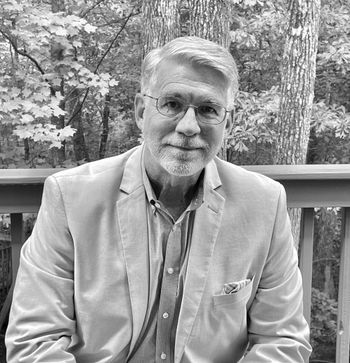PROF JENKINS: This is the difference between free speech and academic freedom
Professors can teach their subject in the way that seems best to them, but they should refrain from wandering into unrelated topics. In other words, they can’t just say whatever they want.
Rob Jenkins is a Higher Education Fellow with Campus Reform and a tenured associate professor of English at Georgia State University - Perimeter College. In a career spanning more than three decades at five different institutions, he has served as a head men’s basketball coach, an athletic director, a department chair, and an academic dean, as well as a faculty member. Jenkins’ opinions are his own and do not represent those of his employer.
We’ve been hearing a lot lately, from leftist academics and journalists, about attacks on “free speech” and “academic freedom” on campus—especially in states like Florida, where conservative governors are pushing back against far-left propaganda.
But does that pushback really infringe on faculty members’ rights? What about a professor who tells his class that all white students are racists, for instance? Is such a baseless and defamatory statement protected by either the First Amendment or the concept of academic freedom?
The short answer is “No,” as I’ll explain. But first let me point out that free speech and academic freedom, although often conflated, are not the same. Freedom of speech is a Constitutional right. Academic freedom is merely a guideline most colleges and universities voluntarily commit to follow.
More specifically, the First Amendment to the United States Constitution protects the right of private citizens to speak freely. And while there are legal limits on speech—such as slander, terroristic threats, and incitement to violence—the political variety is virtually unrestrained. You can basically say whatever you want about a political candidate, party, idea, or movement.
[RELATED: PROF JENKINS: Campus ‘authoritarianism’ is a left-wing phenomenon]
That doesn’t mean everyone has to like what you say. A private employer might even punish you for it. But the government cannot. And that brings us back to professors, most of whom work for state institutions—essentially, government agencies. Can those institutions regulate faculty speech?
The answer, in this case, is “Yes and no.” It depends on where the speech takes place and in what context. The courts have generally held that public higher education institutions cannot discipline professors for speaking their minds as private citizens. Though many colleges have tried, and some have even succeeded, others have had to settle or pay large damages.
But what about classroom speech—what professors say when they’re “on the clock”? Such speech traditionally has NOT been protected by the First Amendment (with a few exceptions, as we’ll see in a moment). That’s where academic freedom comes in, enabling professors to teach as they see fit.
However, academic freedom is even more limited than the First Amendment. As the American Association of University Professors puts it, “teachers are entitled to freedom in the classroom in discussing their subject, but they should be careful not to introduce into their teaching controversial matter which has no relation to their subject.”
That’s a pretty big caveat. Basically, professors can teach their subject in the way that seems best to them, but they should refrain from wandering into unrelated topics. In other words, they can’t just say whatever they want.
But what if they do? What if they engage in political activism or attempt to indoctrinate students into toxic ideologies like “anti-racism” or “transgenderism,” especially in courses where those concepts aren’t even relevant? The AAUP statement suggests academic freedom would not apply in such cases. But are those professors protected by the First Amendment?
[RELATED: PROF JENKINS: What to do if mask mandates return to your campus]
For the most part, as noted above, the answer is “No.” The Supreme Court ruled in Garcetti v. Ceballos (2006) that government employees do not enjoy First Amendment protection in the performance of their duties—although the justices intentionally left open the question of whether that applies to college faculty.
Subsequent court rulings have fine-tuned the Garcetti decision. In Adams v. University of North Carolina (2014), the Ninth Circuit said an institution could not hold a professor’s published writings against him in promotion decisions. That same court held, in Demers v. Austin (2014), that professors’ criticisms of administrators were also protected.
More recently, in Meriwether v. Hartop (2021) the Sixth Circuit carved out another narrow exception, ruling that professors could not be forced to use students’ “preferred pronouns.”
But none of those decisions gives faculty carte blanche in the classroom. Indeed, the DeSantis administration in Florida, in response to its critics, has argued that classroom speech is actually government speech because professors are government employees. Whether that argument prevails remains to be seen.
Meanwhile, teaching faculty must rely primarily on their institutions’ commitment to academic freedom, not on the First Amendment. And the former concept, as we’ve seen, is not only inherently limited but places the onus on them to make sure they’re actually teaching, not indoctrinating.
Editorials and op-eds reflect the opinion of the authors and not necessarily that of Campus Reform or the Leadership Institute.

